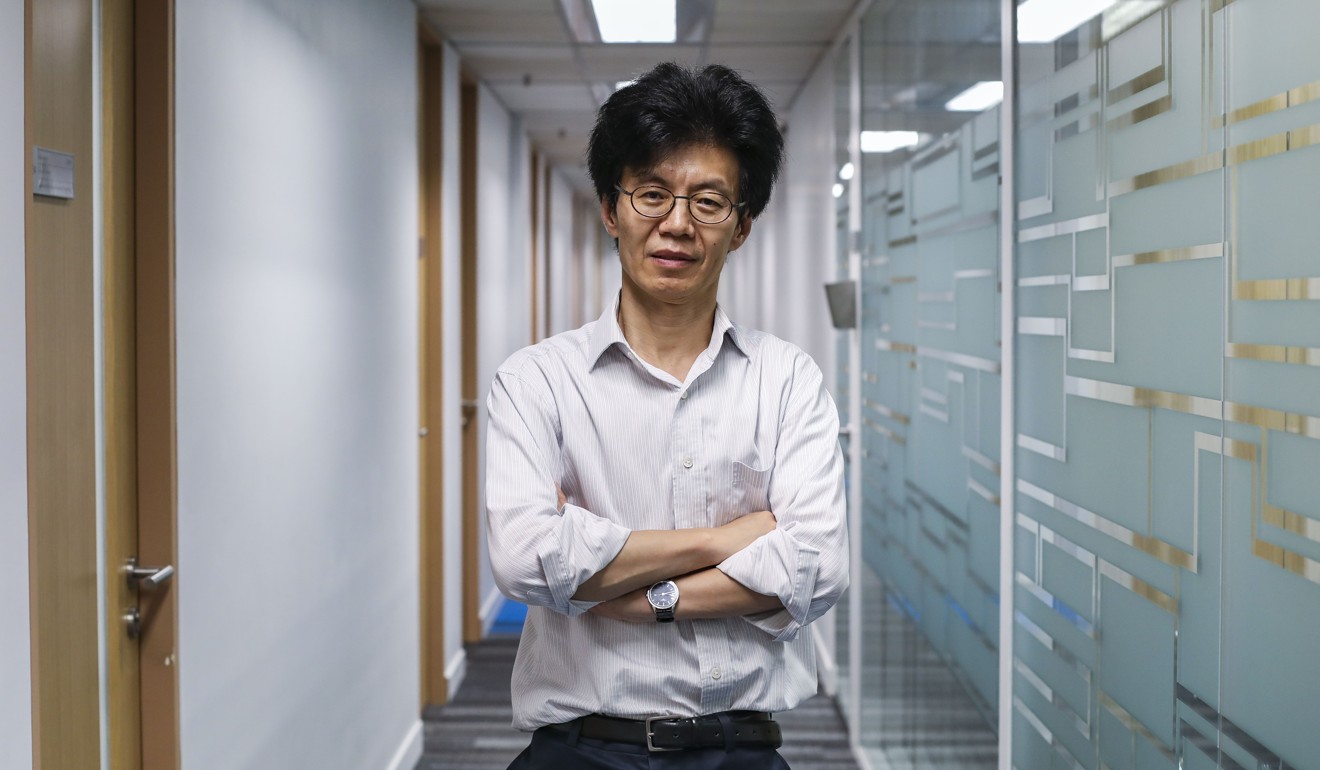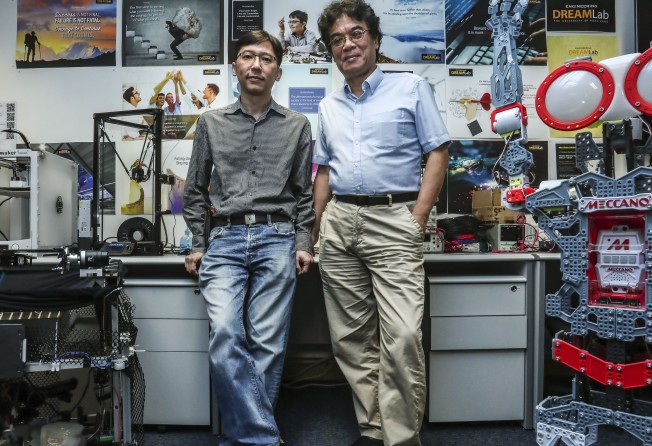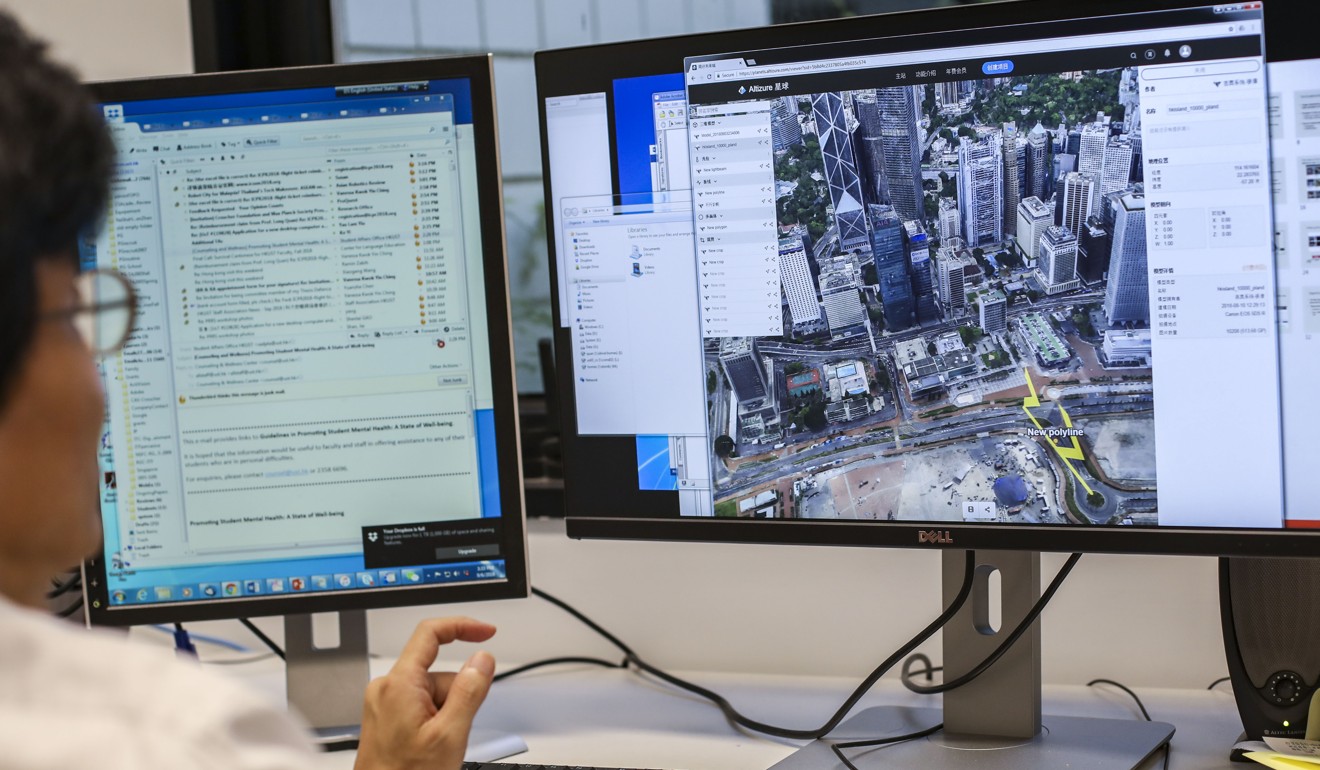
‘Do not fear AI’, Hong Kong scientists say as they champion local branch of Beijing’s Institute of Automation
Experts hail expected boost in research, which could enhance mapping and medicine, and play down apocalyptic film visions of the rise of robots

From a small corner of the Hong Kong University of Science and Technology’s scenic campus in rural Clear Water Bay, a computer scientist is building a globkenal platform of three-dimensional maps, powered by artificial intelligence, that he hopes can rival Google Earth.
But Professor Quan Long’s ambition goes beyond mapping – he is interested in the reconstruction of 3D images that would help cities improve traffic monitoring and town planning, while prioritising the privacy of citizens.
Over at the University of Hong Kong, associate dean of engineering Professor Francis Lau Chi-moon and associate professor Kenneth Wong Kwan-yee are also working on artificial intelligence, but with a focus on teaching computers music and medicine.

Quan, Lau and Wong are among the city’s scientists pursuing AI research to improve people’s lives. And they are expecting a boost in their work when Beijing’s Institute of Automation sets up a branch at Hong Kong’s science park, a move announced by the local government in August.
They also welcomed the announcement on Thursday that SenseTime, a Hong Kong start-up specialising in AI, has been picked by Beijing as a partner in powering the nation’s ambition to be a global tech leader.
Wong has been working on a project to equip computers with the ability to assist doctors in colon cancer screening by detecting precancerous polyps. The form of cancer is the second most lethal in Hong Kong, after lung cancer. In 2016, colon cancer claimed 2,089 lives, accounting for 14.7 per cent of all cancer deaths.

On the other hand, Lau has been teaching computers to help compose and play their own original music at restaurants or hotel lobbies. “Through this software, [managers] can choose music styles that they want ... This can help avoid copyright concerns while allowing customers to listen to something new.”
Both Wong and Lau are optimistic the new Institute of Automation branch will bring more funding, expertise and collaboration with experts from across the border.
As for Quan, his AI platform is aimed at serving drone operators and researchers, who can update the system comprising a global network of 3D maps. At present, Google’s version is based on satellite imagery and does not allow user contribution.
Quan said he hoped his research could also help authorities improve traffic monitoring and town planning, as well as fight crime by enhancing police detection through combining 3D maps with camera networks.
“We are providing the key technology to make that happen ... Now everything is manual: there is a crime and police go through surveillance videos one by one. In the future you get all the information you need at the press of a button,” he said.
Echoing Quan’s point, Lau said he believed that with more support for the AI field from the local government, Hong Kong could be “one of the world’s leading smart cities”.
Citing an example, Lau said traffic lights and lamp posts could be installed with AI sensors to help government officers monitor traffic and recommend the best routes for drivers.
As AI and big data technologies become more prevalent, a survey in March found that three out of four people in China were worried about the threat to privacy.
But Quan urged people “not to be scared” of technology.
“We cannot refuse to eat for fear of choking ... AI is actually very limited, it’s basically automation – we can automate a lot of very tedious tasks for humans,” he said.
AI is a tool, and how it is used depends on us, humans
Wong compared AI as a product to the work of blacksmiths, adding that while knives produced were for chefs and kitchen use, the tools, when in the wrong hands, could also be used to hurt people.
“In a similar way, AI is a tool, and how it is used depends on us, humans,” he said.
As for whether low-skilled jobs would be made redundant by AI, Quan and Wong argued that with better management of human resources, this was not necessarily be a threat. They said for example, any spare labour replaced by AI could be channelled to other sectors in the work force.
“The development of AI is for improving quality of life ... When people are worried about heart problems, their mobile apps and sensors can tell them that they are OK, and they don’t need to rush to hospitals.”
In a forum organised by the Post on Thursday, leaders from Ernst & Young, DHL Express and Cisco Systems also voiced optimism over the impact of automation and dismissed concerns over job losses arising from the emerging use of artificial intelligence.
Quan said instead of buying into the paranoia peddled in sci-fi films, Hong Kong should promote more cross-border cooperation to catch up with the world’s leaders in AI.
He said he welcomed Chief Executive Carrie Lam Cheng Yuet-ngor’s announcement last month that the Institute of Automation, China’s top research body on AI, would set up a branch at the Hong Kong Science and Technology Park as a base for more collaboration and research.
“We have very strong ... AI groups in Hong Kong universities, I believe the Institute of Automation will be yet another key player in AI. We can complement each other,” he said.
Since 2009, the Beijing-based institute has set up a joint laboratory for such work at HKUST, with Quan as the Hong Kong director of the lab. But he conceded that because of lack of funding, the collaborative effort “was not that active”.
Quan hoped the establishment of the new branch would take local research efforts in the field up a notch.